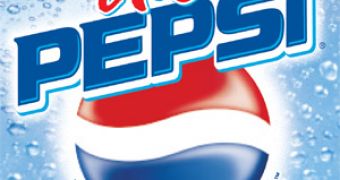Healthy-living advocates will probably not take lightly to this piece of news, seeing how fizzy drinks (be they dietary or not) toy with one's organism.
However, the fact remains that PepsiCo has recently decided that, if the company's profits are to please the management team, then something must be done in order to make sure their Diet Pepsi would no longer alter its taste when left of the shelves for too long or when exposed to heat.
Hence the company's decision to add another artificial sweetener to the “concoction.”
Sources report that, up until now, the Diet Pepsi produced and manufactured by this company only contained aspartame, a chemical compound which tends to alter its taste when made to sit in slightly warmer temperatures and which breaks down within relatively short periods of time.
The artificial sweetener added to the traditional Diet Pepsi “recipe” is known as acesulfame potassium, and PepsiCo wished to reassure people that this compound is also a zero-calorie sweetener, just like aspartame is.
While most people argue that adding this chemical compound to the beverage will lead to its losing its defining taste, the company maintains that this will not be the case.
As they put it, their only goal is that of making sure the beverage stays fresh and sweet for longer periods.
Needless to say, the general public will be given the opportunity to become accustomed to the new Diet Pepsi taste and even compare it to the old one, meaning that the new recipe will gradually “flood” the market as customers keep drinking its predecessor and make room for it.
It is expected that it will be a few months before supermarkets, stores and other similar locations will only be selling the new and improved Diet Pepsi.
“It’s not like a light switch. It’ll start appearing as shelf space clears,” explained a spokesperson for the company.
In order to promote the new Diet Pepsi, the company intends to also roll out a marketing campaign as early as January 2013.

 14 DAY TRIAL //
14 DAY TRIAL //